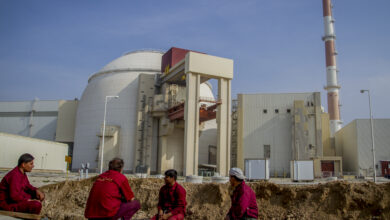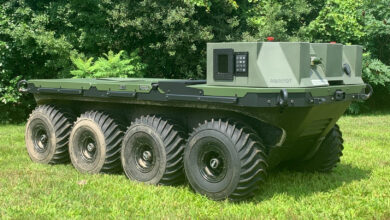US Fifth Generation Target Drone to Begin Test Flights
The unmanned vehicle, which accurately simulates fifth-generation fighters, is set to start air maneuvers later this month after a successful round of ground testing.
The Defense Department announced on Wednesday it will begin test flights of its much-anticipated Fifth Generation Aerial Target drone (5GAT) later this month at Dugway Proving Ground in Utah.
Delayed by cost overruns and transportation restrictions due to the COVID-19 pandemic, the 5GAT pilotless test vehicle underwent successful ground-based testing in September at Michael Army Airfield, garnering top marks.
The new drone system has generated a great deal of excitement among defense officials because of its ability to simulate fifth-generation enemy fighter threats US forces may encounter.
The 5GAT, described as “a full-scale, low-observable air vehicle,” will facilitate the testing and evaluation of surface-to-air and air-to-air platforms and weapons in the development of tactics for pilots and ground forces to combat a fifth-generation air threat — at a small fraction of the cost of comparable jet fighters.
Latest in Increasing Drone Development
As part of a recent spike in the development of US drone force technology, the 5GAT system is designed to address a current deficit in platforms which accurately represent the capabilities of the latest generation of fighters for the training of defense force personnel.
The primary contractor on the project, Sierra Technical Services, developed creative solutions including “soft tooling” in airframe construction to minimize costs. Subcontractor Fast Optimal Engineering was in charge of developing major subsystems such as landing gear, hydraulics, and steering while another, 5D Systems, developed the drone system’s software suite.
Another key approach in driving down costs and speeding development of the three-and-a-half-year, cutting-edge drone project has been streamlined acquisitions, procurement, and management processes. The utilization of an existing army air control system and hardware from decommissioned military aircraft has also assisted completion.
Initial testing late this month will evaluate flight characteristics and the performance of multiple subsystems, auto-takeoff, and landing, while further testing is set to measure increased G-force loading, speed, and altitude flight envelope limits.












